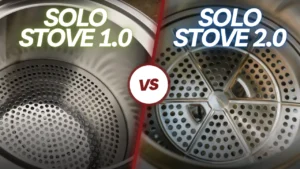I was heating up a styrofoam noodle cup the other day and I got a bit worried about styrofoam in the microwave and if it could be leaching chemicals into my food.
I know there have been studies done into some types of plastic and we know now that BPA is an endocrine-disruptor and can cause health problems in humans including cancer. But what about styrofoam?
Can you get cancer from microwaving styrofoam? Does styrofoam contain any known carcinogens and can it leach chemicals into our food?
I did some research and looked into the scientific papers and what I discovered was alarming!
Microwaving food or drinks in styrofoam DOES likely increase your chances of getting cancer. A study published in the Journal of Environmental Science showed that styrofoam leached the chemical styrene into drinks. Styrene is a probable carcinogen and likely to cause cancer.
Honestly, this news was pretty shocking to me. I've often cooked noodles in styrofoam and I know around the world people use styrofoam for everything from take out containers to coffee cups.
In this article we'll look at what research has been done into styrofoam, what negative health outcomes it may cause (including cancer) as well as some of the drastic measures some cities are now taking to completely remove styrofoam.
Styrofoam Contains The Toxic Cancer-Causing Styrene
What we call styrofoam is either extruded polystyrene or expanded polystyrene (learn more here).

Polystyrene is made from styrene which is polymerized or chained together to create polystyrene beads.
Polystyrene is different from styrene in it's nature and overall likely not as dangerous or toxic as styrene itself it has been proven that residual styrene remains in styrofoam cups, bowls, plates and other containers.
Why Is Styrene So Bad?
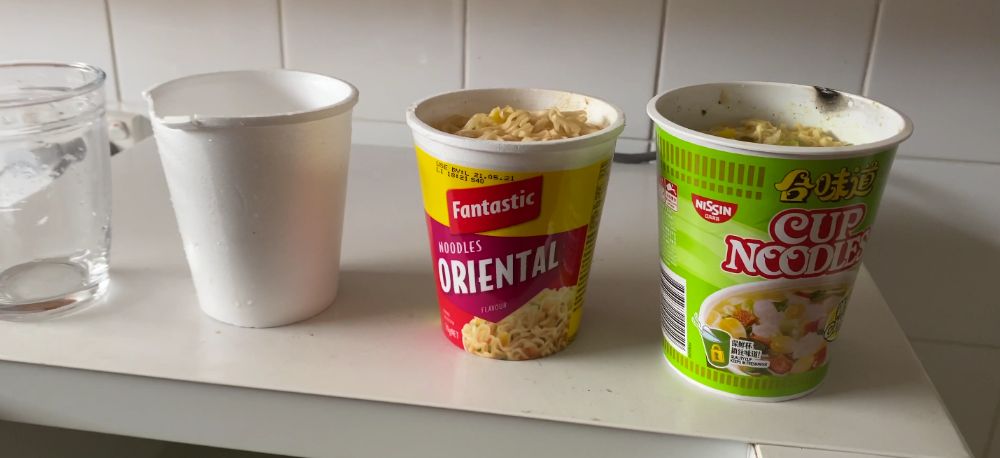
Styrene is so bad because it has a variety of negative health outcomes, including an increased chance of getting some types of cancer.
It's not yet listed as a definite human carcinogen, but it is listed as a probable human carcinogen, with a bunch of studies supporting this.
This article and review by ScienceDaily states some interesting facts about styrene:
- “the most recent styrene study shows the risk of acute myeloid leukaemia, a rare form of leukemia, is doubled”
- “Another important research result is a fivefold risk for a particular type of nasal cancer following styrene exposure.”
This article from the National Library of Medicine also states:
‘Studies in the reinforced-plastics industry provided evidence that suggests a possible association between styrene exposure and cancer of the esophagus or pancreas.’…
Hence, based on both animal and human cancer studies and genotoxic findings including clastogenicity and DNA damage in workers as well as on other supportive and biologically plausible mechanistic results, styrene and styrene-7,8-oxide should be considered as presenting carcinogenic risks to humans, particularly for lymphatic/hematopoietic cancers.
Polystyrene Containers Leach Styrene Into Food
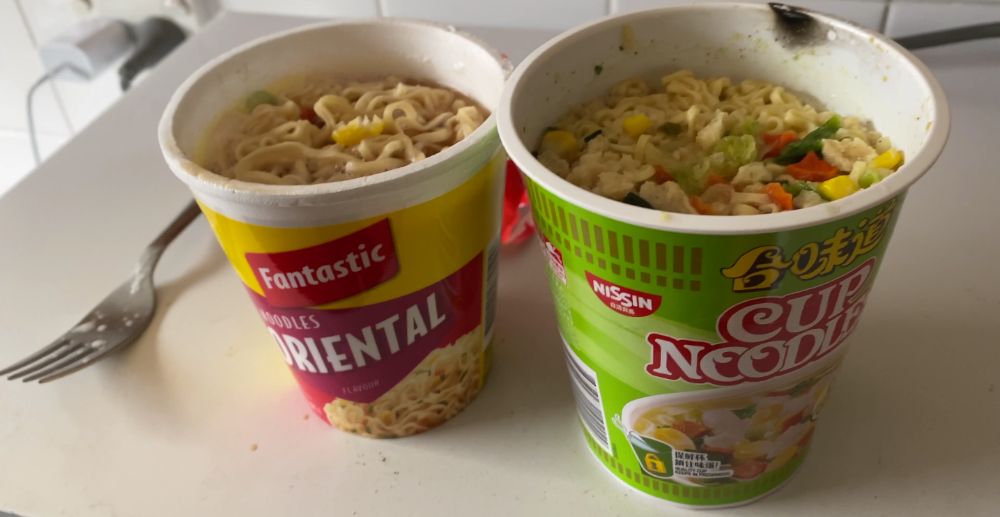
Styrene is to be avoided and polystyrene has recently been shown to leach the toxic chemical into our food and drinks.
This medical study published in the Journal of Environmental Science looked to see whether or not polystyrene cups and water bottles leached harmful chemicals into water.
They also looked into whether or not heat played a role in this leaching.
They discovered that polystyrene can in fact leach the harmful chemicals styrene, ethyl benzene, toluene and benzene into water and that the higher the heat the more leaching occurred.
You can read the paper for full details but below is a table showing how much styrene was leached from styrofoam cups at different temperatures.
The higher the temperature the more leeching occurred!
| Temperature (ºC) | Styrene (µg/L) |
| Ambient | 0.00 |
| 50 | 0.00 |
| 70 | 1.16 |
| 90 | 9.35 |
| 100 | 17.37 |
As you can see the hotter you go the more leaching that occurred.
This was also true for all other chemicals looked at in this study.
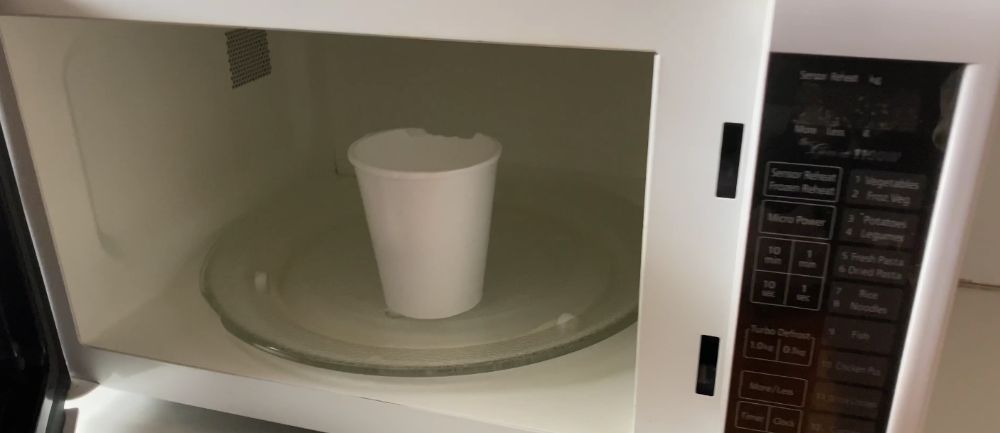
When you microwave styrofoam the food inside can reach temperatures above 70-100ºC (158-212ºF) which is where most leaching occurs. The styrofoam itself can also reach high temperatures due to the energy from the microwave oven.
This report concluded that:
Considering the toxic characteristic of styrene and leaching in water and other products, polystyrene (PS) material should be avoided for food packaging. Especially PS rigid and foam cups should not be used for hot drinks. Paper cups are safe for hot drinks and have no threat as from PS cups. It is also recommended that public awareness program shall be launched to avoid Styrofoam cups for hot drinks.
This quantitative analysis also proves the presence of the harmful chemical styrene in polystyrene products as well as the leaching of styrene into drinks.
In summary: You should NEVER microwave food or drinks inside styrofoam as it can leach harmful toxic chemicals that are likely to be carcinogenic increasing you chances of getting cancer.
Major Cities Like New York Now Banning Styrofoam
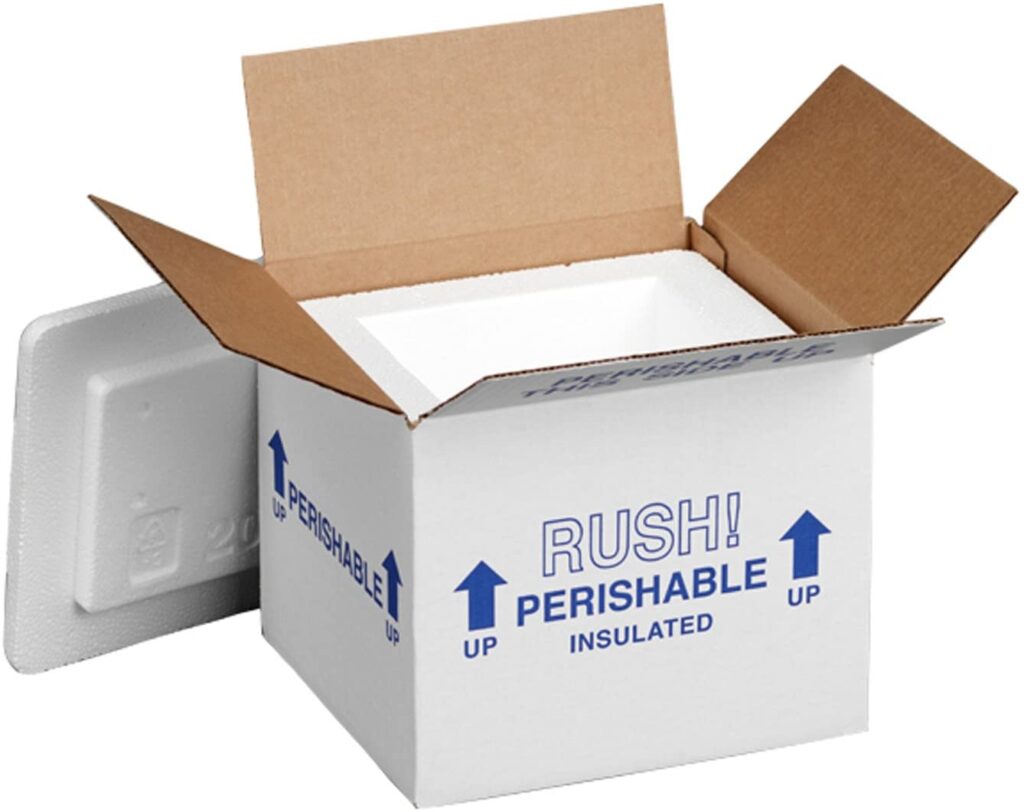
Cities and states around the world are now starting to place total bans on styrofoam cups, containers and packaging.
According to CNN on 1st January 2019 New York city banned the use of expanded polystyrene (styrofoam) single use food containers as well as the packaging material known as “packing peanuts”.
“Styrofoam is one of the most common pollutants and a public health hazard that impacts humans and the environment alike,” Governor Cuomo said in this government press release.
And other cities and states are following suit. Cities like Miami Beach, San Diego, Seattle and Washington DC have all banned styrofoam and the entire state of Maine is banning styrofoam beginning in 2021.
While the main reason for these bans are environmental (styrofoam isn't worth recycling and doesn't break down) it's still really good to see this toxic harmful substance being removed from our lives.



